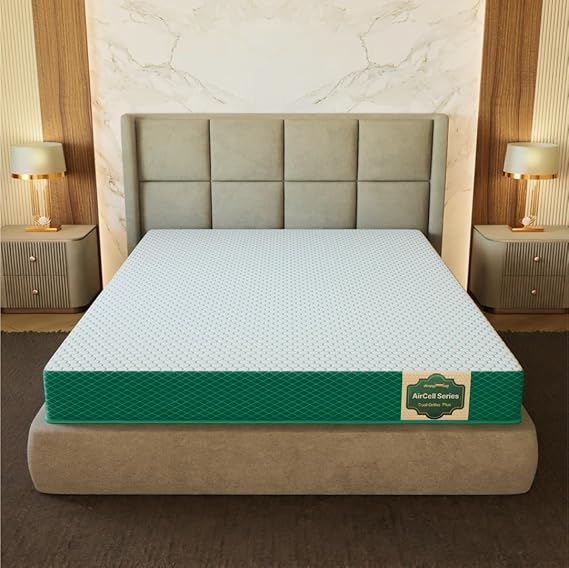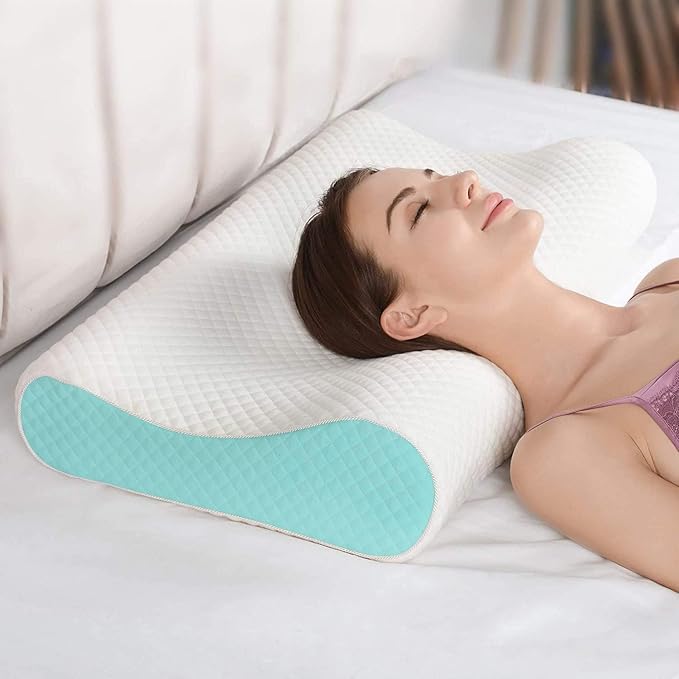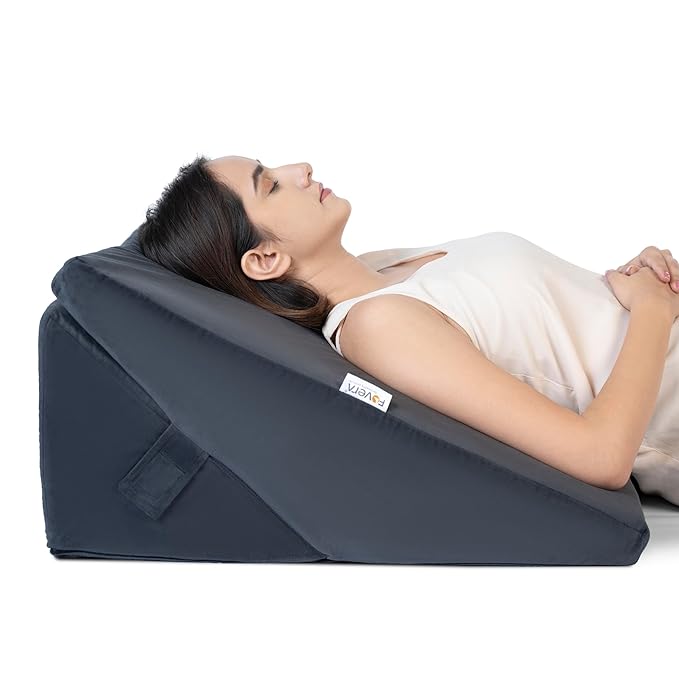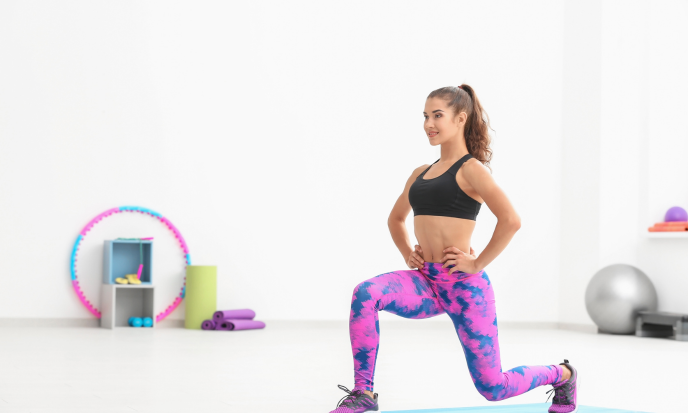What Your Sleep Position Says About Your Health
Sleep is one of the most fundamental pillars of good health, but it’s not just the number of hours that matter — how you sleep is equally important. The position you adopt each night can influence your breathing, spinal alignment, heart health, and even your mood. While most of us don’t give much thought to whether we’re lying on our back, side, or stomach, research shows that your sleep position could say a lot about your overall well-being.
In this blog, we’ll explore the most common sleep positions, their impact on your health, and how you can adjust your posture for more restorative rest.
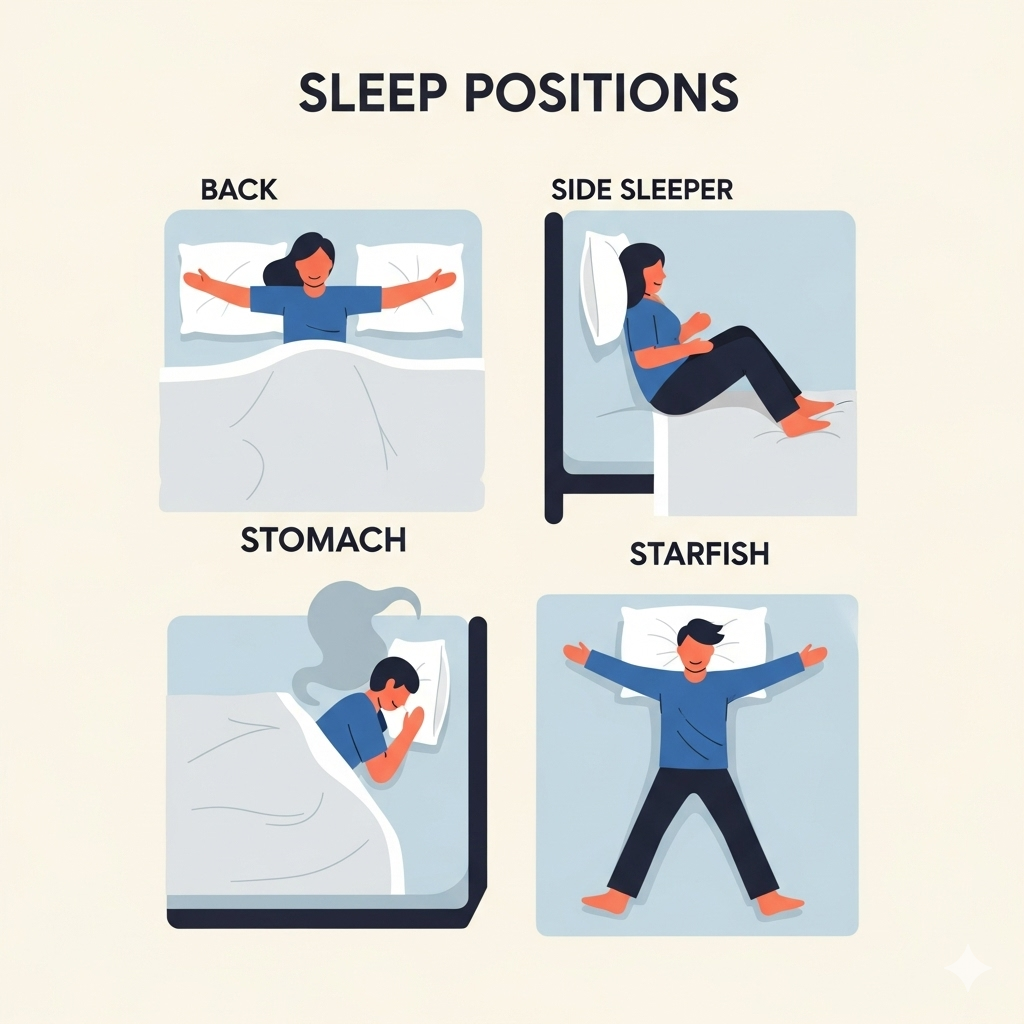
Why Sleep Position Matters
Your sleep position affects how your body restores itself overnight. Poor posture during sleep may lead to back pain, neck stiffness, snoring, or even worsening sleep apnea. On the other hand, the right position can support your spine, improve circulation, and enhance your breathing patterns.
Beyond physical health, your sleep position may also reflect certain personality traits and lifestyle habits. While science doesn’t fully confirm psychological interpretations of sleep positions, some patterns do appear consistently across studies.
The Back Sleeper (Supine Position)
Sleeping on your back is often considered the healthiest position, provided you don’t have certain conditions like sleep apnea.
Health Benefits:
- Spinal Alignment: Back sleeping keeps the head, neck, and spine in a neutral position, reducing the risk of chronic pain.
- Reduced Wrinkles: Because your face isn’t pressed against a pillow, you may experience fewer fine lines over time.
- Acid Reflux Relief: Sleeping on your back with your head slightly elevated can minimize symptoms of acid reflux.
Health Risks:
- Snoring and Sleep Apnea: Back sleeping can cause the tongue and soft tissues to collapse backward, worsening airway obstruction.
- Lower Back Pain: Without proper pillow support, some people may feel pressure on their lower back.
Personality Insight:
Back sleepers are often described as confident, open-minded, and comfortable with themselves. They’re also said to value order and routine.
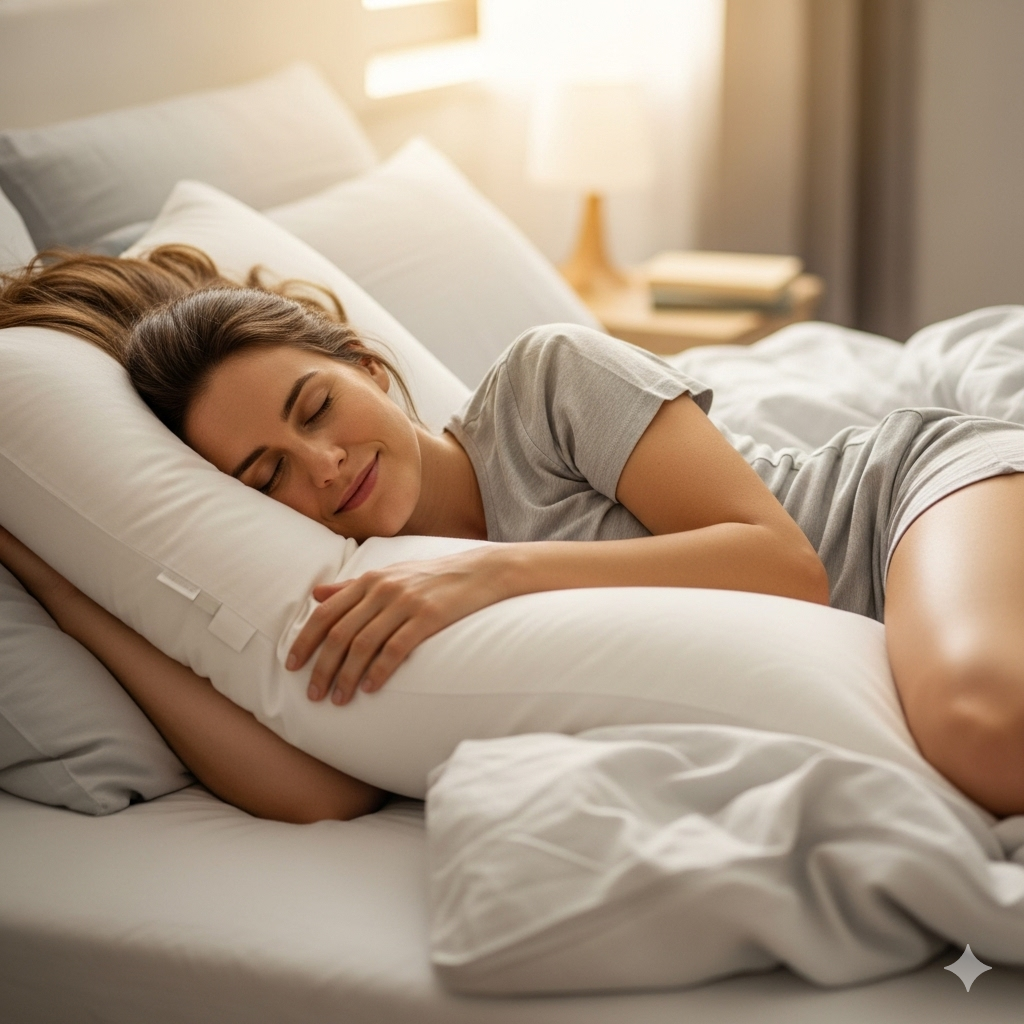
The Side Sleeper (Fetal or Log Position)
Side sleeping is the most popular position worldwide, with nearly 60% of adults preferring it. Variations include curling into a fetal position or lying straight like a “log.”
Health Benefits:
- Improved Digestion: Sleeping on the left side helps with digestion and reduces acid reflux by keeping the stomach below the esophagus.
- Better for Pregnant Women: Left-side sleeping improves blood circulation to the fetus and relieves pressure on vital organs.
- Reduced Snoring: Side sleeping helps keep the airway open, lowering the risk of snoring and sleep apnea.
Health Risks:
- Shoulder & Hip Pressure: Lying on one side for long periods can cause stiffness or joint pain.
- Facial Wrinkles: Constant pressure on one side of the face can contribute to fine lines and sagging.
Please try this pressure-relieving hybrid mattress for better sleep.
Personality Insight:
Fetal sleepers are often perceived as sensitive yet resilient, with a protective nature. Those who sleep in a log position are thought to be social, easygoing, and trustworthy.
The Stomach Sleeper (Prone Position)
Though less common, some people swear by sleeping on their stomach. Unfortunately, this position comes with more drawbacks than benefits.
Health Benefits:
- Reduced Snoring: Stomach sleeping can reduce snoring by preventing the tongue from blocking the airway.
Health Risks:
- Neck & Back Pain: Sleeping face-down twists the neck and flattens the natural curve of the spine, leading to discomfort.
- Nerve Compression: This position can put pressure on nerves, causing tingling or numbness in arms and legs.
- Breathing Difficulty: The chest has less room to expand, which can make breathing slightly more labored.
Personality Insight:
Stomach sleepers are often described as adventurous, outgoing, and bold, but they may also struggle with anxiety or feeling a lack of control.
The Starfish Position
This variation of back sleeping involves spreading out arms and legs freely, like a starfish.
Health Benefits:
- Shoulder Relief: Keeps the body open and reduces stress on the lower back if properly supported.
- Less Snoring: With the right pillow, the airway can remain open.
Side sleepers can benefit from using a supportive memory foam pillow to keep the neck aligned
Health Risks:
- Shoulder Strain: If arms are overhead, it can strain the shoulders and lead to tingling sensations.
- Worse Sleep Apnea: Like other back-sleeping styles, it may aggravate airway issues.
Personality Insight:
Starfish sleepers are often loyal friends, good listeners, and people who value meaningful relationships.
How to Improve Your Sleep Posture
If you suspect your current sleep position is harming your health, the good news is you can make adjustments.
- For Back Sleepers: Use a supportive pillow under the knees to reduce lower back strain. Keep your head elevated slightly to prevent acid reflux.
An adjustable wedge pillow ties perfectly to reducing acid reflux and snoring
- For Side Sleepers: Place a pillow between your knees to align the hips and reduce pressure. Choose a firm pillow to support the neck.
- For Stomach Sleepers: Use the thinnest pillow possible or sleep without one to reduce neck strain. Consider transitioning to side sleeping for long-term health.
- General Tip: Invest in a high-quality mattress designed for your preferred position. Memory foam and hybrid mattresses are particularly good at providing pressure relief.
When to Talk to a Doctor
If you experience chronic snoring, morning headaches, persistent fatigue, or severe back/neck pain, your sleep position may not be the only issue. Conditions such as sleep apnea, GERD, or musculoskeletal disorders may need professional evaluation. A sleep study or consultation with a specialist can provide deeper insights.
Your sleep position isn’t just about comfort — it’s a reflection of your health and, in some ways, your personality. While no position is perfect for everyone, being mindful of how you sleep can help prevent pain, improve breathing, and promote overall well-being. Small adjustments, like using the right pillow or shifting sides, can make a big difference in the quality of your rest.
In the end, the best position is the one that allows you to wake up refreshed and pain-free. Pay attention to your body’s signals, and don’t hesitate to make changes for better sleep and better health.

